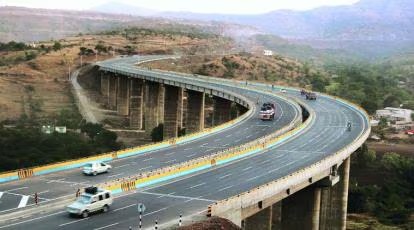Reliance Infrastructure Ltd has announced its intention to sell its Pune-Satara toll road asset for approximately Rs 1,000 crore. This strategic move is aimed at paring down the company’s substantial debt burden and improving its overall financial health. The sale highlights Reliance Infra’s focus on optimizing its asset portfolio and strengthening its balance sheet amid evolving business priorities.
Key Highlights Of The Toll Road Sale
Reliance Infrastructure is in advanced discussions to divest the Pune-Satara Expressway, a key toll road project connecting the cities of Pune and Satara in Maharashtra.
-
The estimated transaction size is around Rs 1,000 crore, reflecting the asset’s value and future earning potential.
-
Proceeds from the sale will primarily be used to pay down existing debt, reducing financial leverage and interest costs.
-
This asset monetization is part of a broader strategy to focus on core businesses and streamline capital allocation.
The deal is expected to complete in the near term subject to regulatory approvals and customary closing conditions.
About The Pune-Satara Toll Road Asset
The Pune-Satara highway spans over 110 kilometers and serves as a significant transportation corridor facilitating the movement of goods and commuters in Maharashtra.
Toll revenues from this expressway provide steady cash flows, driven by vehicular traffic growth and macroeconomic activity in the region.
The asset is operated under a public-private partnership (PPP) model, involving a concession agreement with the government.
Its strategic location near major industrial hubs adds to its importance within Reliance Infra’s portfolio.
How The Sale Fits Into Reliance Infra’s Financial Strategy
Reliance Infra has been actively managing its debt profile to improve liquidity and financial stability, given the capital-intensive nature of infrastructure projects.
Reducing debt through asset sales helps the company free up resources for growth initiatives and improve credit ratings.
Strengthening the balance sheet enables Reliance Infra to pursue selective investments focused on profitability and sustainability.
The company has stated its commitment to disciplined capital management and enhancing shareholder value.
Market And Industry Implications
The infrastructure sector in India continues to attract investor interest for quality toll assets offering stable cash flows.
Reliance Infra’s sale may trigger competitive bidding, indicating robust demand for road infrastructure assets.
The transaction highlights ongoing trends of infrastructure companies monetizing mature assets to fund new developments or reduce financial risks.
The market will watch closely how Reliance Infra reinvests or uses the proceeds to impact overall business performance.
What Stakeholders Should Expect Next
Shareholders and analysts will be looking for updates on the transaction’s progress and its immediate impact on financial metrics.
Customers and partners along the toll road corridor can expect continued operations without disruption.
Regulators’ timely approvals and clearances will be key to closing the deal smoothly.
The deal may set benchmarks for pricing and valuation of similar infrastructure assets.
Summary Of Reliance Infrastructure’s Pune-Satara Toll Road Divestment
Reliance Infrastructure’s plan to sell its Pune-Satara toll road for approximately Rs 1,000 crore marks a significant step toward deleveraging and portfolio optimization. The company aims to use the proceeds to reduce debt, improve financial health, and sharpen its focus on core business areas. This move aligns with broader infrastructure sector trends of asset monetization and fiscal prudence.
Sources: Reliance Infrastructure official disclosures, market news platforms, infrastructure industry analysis reports

